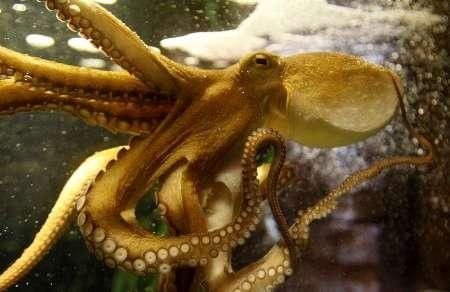Breakthrough in Technology: A Device Which Camouflages Itself to its Surroundings
Scientists Find Ways to Mimic the Octopus' ability to Camouflage itself

Nature was an inspiration for breakthroughs in technology and the octopus has joined the league. When an octopus wants to attack a prey or hide from a predator it camouflages itself and blends into the surrounding environment hiding behind coral and rocks.
Researchers have found a way to replicate the octopuses' ability to hide from sight with a device that could give way to advanced camouflage technology. This technology can be used in the defence industry to a person's home.
A device that could read and mimic the black and white colour pattern of its surroundings was described by Cunjiang Yu, assistant professor of mechanical engineering at the University of Houston. This story was carried in a newspaper on the 18th of August by the proceedings of the National Academy of Science.
Yu along with his team created an optoelectronic camouflage system which can detect and control surrounding light. The skin of the octopus or the camouflaging mollusks like, squid or cuttlefish is functioning in the same manner.
"Nature has a lot of amazing capabilities that we could learn so much from", Yu told FoxNews.com. Yu also went on to add that there is so much to learn from the cephalopod on the cellular level. The team wanted to integrate the natural principles of the cephalopod and incorporate them into their artificial design.
The project was funded by the Navy. Yu and his team were working on this for over six months. They made a system that look like skin but it was equipped with light sensors, heater that controlled colour switching and semi-conductor actuators that respond to temperature and light just like the octopus. The pigment in the chromatophore cell in the octopus causes it to change colour. The device also responds to the environment without any human interference. The device is still in its early stages of development and can change colour only from black to white. But according to Yu, the team would develop it to respond to other colours as well.
This kind of technology can be used in the military for camouflage in a war zone. It will even find its way into homes, said Yu. According to him it could be used in children's toys or in the sides of the cars.
The team is in the hope to fine tune the device to mimic the complex camouflage of the octopus. The response to Yu's device was positive.
Yu said that people are excited from several areas in the scientific field. The technology could be used in various fields from the military to bio-medical research. He also added that they would have to wait and see how this technology will make its way into the market.





















